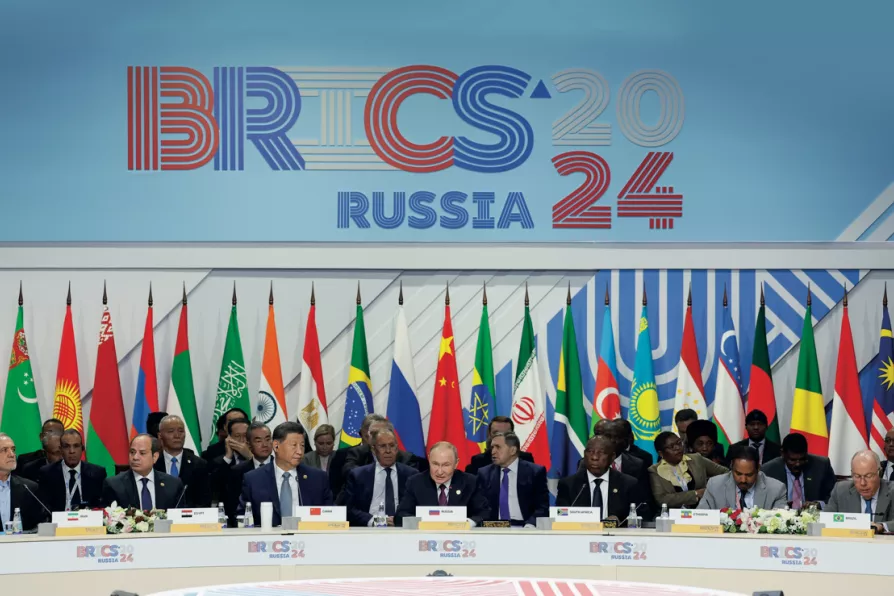As tens of thousands return to the streets for the first national Palestine march of 2026, this movement refuses to be sidelined or silenced, says PETER LEARY

 (Left to right) Iranian President Masoud Pezeshkian, Egyptian President Abdel Fattah el-Sisi, Chinese President Xi Jinping, Russian President Vladimir Putin, South African President Cyril Ramaphosa, Ethiopian Prime Minister Abiy Ahmed and Brazilian Foreign Minister Mauro Vieira in Kazan, Russia, October 202
(Left to right) Iranian President Masoud Pezeshkian, Egyptian President Abdel Fattah el-Sisi, Chinese President Xi Jinping, Russian President Vladimir Putin, South African President Cyril Ramaphosa, Ethiopian Prime Minister Abiy Ahmed and Brazilian Foreign Minister Mauro Vieira in Kazan, Russia, October 202
THE Brics+ Kazan summit in Russia stood out as a pillar of stability in an increasingly volatile and dangerous world. With wars raging in Ukraine and the Middle East, pushing the UN system to breakdown, it kept the spirit of multilateralism alive.
Gathering leaders and representatives from 36 countries, the meeting was the first for the enlarged grouping, which last year added UAE, Ethiopia, Egypt and Iran to the existing Russia, China, India, Brazil and South Africa.
The rise of the Brics+ has divided left opinion. Supporters claim it to be transformative, tipping the global balance against the G7 and spelling the end of US hegemony as bearers of a new international financial order and a more peaceful world.

In a speech to the 12th Xiangshan Forum in Beijing, SEVIM DAGDELEN warns of a growing historical revisionism to whitewash Germany and Japan’s role in WWII as part of a return to a cold war strategy from the West — but multipolarity will win out

JENNY CLEGG reports from a Chinese peace conference bringing together defence ministers, US think tanks and global South leaders, where speakers warned that the erosion of multilateralism risks regional hotspots exploding into wider war

The US’s bid for regime change in the Islamic Republic has become more urgent as it seeks to encircle and contain a resurgent China, writes CARLOS MARTINEZ











